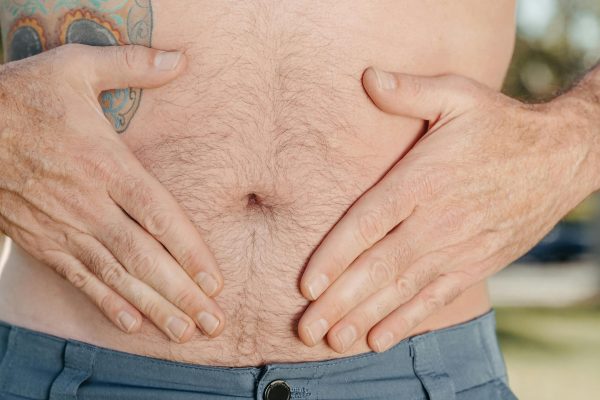In the journey of healing and rehabilitation, testosterone emerges as a silent hero, orchestrating a symphony of physiological processes aimed at restoring health and vitality. Understanding the pivotal role of testosterone in these processes is crucial for optimizing recovery outcomes and promoting overall well-being.
In this comprehensive guide, we delve into the intricate relationship between testosterone and the body’s ability to heal, exploring how this hormone influences collagen synthesis, reduces inflammation, enhances immune function, and supports muscle recovery.
- Understanding Testosterone
- Testosterone and Muscle Recovery
- Factors Affecting Testosterone Levels
- Testosterone Replacement Therapy (TRT)
- Natural Ways to Boost Testosterone
- Testosterone and Gender Differences
- Testosterone Supplements and Performance Enhancement
- Conclusion
- FAQs: Testosterone and Recovery
- Question: Is testosterone safe for everyone?
- Question: Can testosterone supplements enhance recovery?
- Question: What are the risks of testosterone replacement therapy (TRT)?
- Question: How can I naturally boost testosterone levels?
- Question: Are there any risks of excessive testosterone levels?
- Question: How long does it take to see recovery improvements with testosterone therapy?
Understanding Testosterone
Testosterone, often hailed as the quintessential male hormone, is produced primarily in the testes in men and in smaller amounts in the ovaries and adrenal glands in women. Beyond its role in reproductive health, testosterone exerts profound effects on various bodily functions, including metabolism, bone density, cognitive function, and muscle mass.
At a cellular level, testosterone binds to androgen receptors, triggering a cascade of molecular events that regulate gene expression and protein synthesis. These mechanisms underpin the hormone’s diverse physiological effects, making it indispensable for overall health and vitality.
Testosterone levels naturally decline with age, but lifestyle factors such as diet, exercise, stress, and sleep quality also influence its production. Understanding the factors that affect testosterone levels is essential for optimizing healing and rehabilitation processes.\
Testosterone and Collagen Synthesis
Collagen, the most abundant protein in the body, serves as the structural framework for tissues such as skin, tendons, ligaments, and bones. Testosterone plays a crucial role in collagen synthesis, promoting the production of new collagen fibers essential for tissue repair and regeneration.
By stimulating collagen synthesis, testosterone enhances the strength and elasticity of repaired tissues, accelerating the healing process. This is particularly relevant in the context of musculoskeletal injuries, where collagen-rich connective tissues require robust regeneration for optimal recovery.
Anti-inflammatory Properties of Testosterone
Inflammation is a double-edged sword in the healing process. While acute inflammation is necessary for initiating tissue repair, chronic inflammation can impede healing and exacerbate tissue damage. Testosterone exhibits potent anti-inflammatory properties, modulating the immune response to promote tissue repair while mitigating excessive inflammation.
By regulating pro-inflammatory cytokines and promoting the production of anti-inflammatory mediators, testosterone helps create an optimal microenvironment for healing. This delicate balance between pro-inflammatory and anti-inflammatory processes is essential for efficient tissue repair and functional recovery.
Immune System Regulation by Testosterone
The immune system plays a central role in the body’s response to injury and infection, orchestrating a complex interplay of immune cells and signaling molecules to facilitate tissue repair. Testosterone influences immune function, enhancing the activity of immune cells such as macrophages, which play a critical role in removing cellular debris and pathogens from the injury site.
By bolstering immune surveillance and clearance mechanisms, testosterone ensures a swift and effective response to tissue damage, hastening the healing process. This immune-modulatory role of testosterone underscores its significance in optimizing recovery outcomes.
Testosterone and Immune Function: Strengthening the Body’s Defense System
Testosterone and Muscle Recovery
Muscle recovery is a fundamental aspect of the healing process, particularly in the context of sports injuries and physical rehabilitation. Testosterone directly impacts muscle recovery by promoting protein synthesis and facilitating the repair of damaged muscle fibers.
Optimal testosterone levels are essential for preserving muscle mass and strength during periods of immobilization or disuse, preventing muscle wasting and promoting functional recovery. Additionally, testosterone enhances energy levels, mood, and motivation, indirectly supporting the rehabilitation process.
Let’s delve deeper into the fascinating world of muscle recovery and the role of testosterone in this process.
- Muscle Protein Synthesis:
- Testosterone plays a pivotal role in promoting muscle protein synthesis. When you engage in physical activity or resistance training, your muscles experience micro-tears. These tiny tears are a natural part of muscle growth and adaptation.
- Testosterone helps kickstart the repair process by stimulating the production of new muscle proteins. These proteins are essential for rebuilding and strengthening the damaged muscle fibers.
- In simpler terms, testosterone acts as a catalyst, ensuring that your muscles repair and grow after exercise.
- Repair of Muscle Fibers:
- After an intense workout, your muscle fibers undergo wear and tear. Testosterone facilitates the repair of muscle fibers by promoting the fusion of satellite cells (precursor cells) to the damaged muscle cells.
- These satellite cells play a crucial role in muscle regeneration. They contribute to the repair process by fusing with existing muscle fibers, leading to muscle growth and recovery.
- Energy Levels and Mood:
- Optimal testosterone levels contribute to overall well-being. When your testosterone levels are within the healthy range, you’re likely to experience higher energy levels.
- Feeling energetic allows you to engage in physical activities, which, in turn, supports muscle recovery. Whether it’s lifting weights, running, or participating in sports, adequate energy is essential.
- Additionally, testosterone influences mood. It can positively impact your mental state, motivation, and focus. When you’re in a good mood, you’re more likely to stick to your exercise routine and prioritize recovery.
- Indirect Support for Healing:
- While testosterone directly affects muscle recovery, its impact extends beyond just the physical aspects.
- Overall well-being contributes to a positive healing environment. When you feel good mentally and physically, your body is better equipped to repair itself.
- So, think of testosterone as a multifaceted ally—supporting muscle repair, energy levels, and your overall outlook on life.
Factors Affecting Testosterone Levels
Several factors can influence testosterone levels, both positively and negatively. Age-related decline, chronic stress, poor sleep quality, obesity, and certain medical conditions can suppress testosterone production, compromising the body’s ability to heal and recover effectively.
Conversely, lifestyle modifications such as regular exercise, healthy dietary choices, stress management techniques, and adequate sleep can help optimize testosterone levels, enhancing the body’s capacity for healing and rehabilitation.
Testosterone Replacement Therapy (TRT)
In cases of clinically diagnosed testosterone deficiency, testosterone replacement therapy (TRT) may be prescribed to restore hormonal balance and alleviate symptoms such as fatigue, low libido, and muscle weakness. TRT involves administering exogenous testosterone via injections, patches, gels, or implants to supplement endogenous production.
While TRT can be effective in improving symptoms and quality of life in individuals with hypogonadism, it is not without risks. Potential side effects of TRT include cardiovascular complications, hormonal imbalances, mood changes, and infertility. Close monitoring by a healthcare provider is essential to ensure the safety and efficacy of TRT.
Risks and Side Effects of TRT
Before initiating TRT, individuals should be aware of the potential risks and side effects associated with testosterone supplementation. Cardiovascular risks, including increased blood pressure, cholesterol levels, and risk of thrombosis, should be carefully evaluated, especially in individuals with pre-existing cardiovascular conditions.
Hormonal imbalances, such as elevated estrogen levels or suppression of natural testosterone production, can occur with long-term TRT use, necessitating regular monitoring and dose adjustments. Additionally, psychological effects such as mood swings, irritability, and aggression may manifest in some individuals, requiring close supervision and support.
Natural Ways to Boost Testosterone
For those seeking to optimize testosterone levels naturally, lifestyle modifications offer a holistic approach to hormonal health. Regular exercise, particularly resistance training and high-intensity interval training, can stimulate testosterone production and enhance muscle mass and strength.
A balanced diet rich in nutrient-dense foods such as lean protein, healthy fats, fruits, vegetables, and whole grains provides essential nutrients for testosterone synthesis and metabolic function. Adequate sleep and stress management techniques, such as meditation, yoga, and deep breathing exercises, are also crucial for hormonal balance and overall well-being.
Testosterone and Gender Differences
While testosterone is often associated with masculinity, it plays important roles in both men and women’s health. However, testosterone levels differ between genders, with men typically having higher circulating levels than women. These gender differences in testosterone levels influence recovery and rehabilitation processes, highlighting the importance of personalized approaches to care.
Testosterone Supplements and Performance Enhancement
In recent years, testosterone supplements have gained popularity among athletes and fitness enthusiasts seeking to enhance performance and muscle growth. While some supplements may contain natural ingredients purported to boost testosterone levels, their efficacy and safety remain subject to debate.
It’s essential to approach testosterone supplementation with caution, as unregulated products may pose risks to health and well-being. Consulting with a healthcare provider or qualified nutritionist can help individuals make informed decisions about supplement use and ensure they are pursuing safe and evidence-based strategies for optimizing recovery and performance.
11 Best Male Testosterone Boosters That May Improve Your Performance and Health
Conclusion
In the realm of healing and rehabilitation, testosterone emerges as a potent ally, orchestrating a symphony of physiological processes aimed at restoring health, vitality, and function. By promoting collagen synthesis, reducing inflammation, enhancing immune function, and supporting muscle recovery, testosterone plays a multifaceted role in optimizing recovery outcomes and promoting overall well-being.
Understanding the complex interplay between testosterone and the body’s healing mechanisms is essential for healthcare providers, athletes, and individuals navigating the recovery journey. By harnessing the power of testosterone and adopting holistic approaches to hormonal health, we can unlock the full potential of the body’s innate capacity for healing and resilience.
Remember, optimizing recovery and rehabilitation processes involves a holistic approach encompassing lifestyle modifications, medical interventions, and personalized care. Prioritize your health, listen to your body, and seek support from qualified healthcare professionals to embark on a journey of healing and well-being.
Unleash the Power of Testosterone to Build Muscle Fast and Achieve Your Goals
FAQs: Testosterone and Recovery
Question: Is testosterone safe for everyone?
Yes, testosterone is essential for various physiological processes. However, its safety depends on individual circumstances. Testosterone replacement therapy (TRT) should only be administered under the supervision of a healthcare provider, especially in cases of clinically diagnosed testosterone deficiency. It’s essential to discuss potential risks and benefits with a qualified healthcare professional before initiating treatment.
Question: Can testosterone supplements enhance recovery?
Testosterone supplements are often marketed as performance enhancers, but their efficacy and safety remain uncertain. Moreover, the use of testosterone supplements for performance enhancement is prohibited in competitive sports and may lead to disqualification or sanctions. Athletes should exercise caution and consult with a healthcare provider before considering testosterone supplementation.
Question: What are the risks of testosterone replacement therapy (TRT)?
While TRT can be effective in alleviating symptoms of testosterone deficiency, it is not without risks. Potential side effects of TRT include cardiovascular complications, hormonal imbalances, mood changes, and infertility. Close monitoring by a healthcare provider is essential to mitigate these risks and ensure the safety and efficacy of TRT.
Question: How can I naturally boost testosterone levels?
Lifestyle modifications such as regular exercise, a balanced diet, adequate sleep, stress management techniques, and avoiding excessive alcohol consumption and smoking can help optimize testosterone levels naturally. Incorporating resistance training and high-intensity interval training into your exercise routine can stimulate testosterone production and promote overall well-being.
Question: Are there any risks of excessive testosterone levels?
Yes, excessive testosterone levels can lead to risks such as cardiovascular complications, hormonal imbalances, and psychological effects. It’s essential to maintain hormonal balance to prevent these issues from occurring.
Question: How long does it take to see recovery improvements with testosterone therapy?
The timeline for noticing recovery improvements with testosterone therapy can vary depending on individual factors such as age, overall health, and treatment regimen. However, some individuals may begin to see noticeable improvements within a few weeks to months of starting therapy.
Testosterone and Bone Density: Unlocking the Key to Male Bone Strength
The Powerful Link Between Testosterone and Mental Health: Uncovering the Truth





